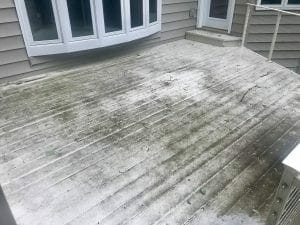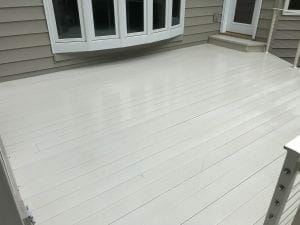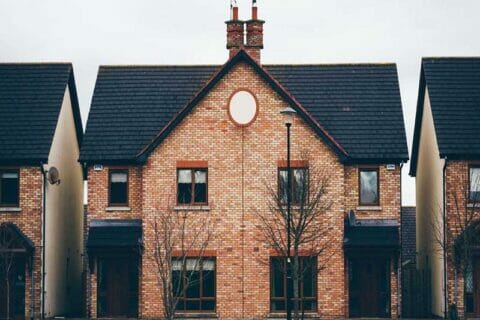Why Soft Washing Is Essential for Your Home and Business
History of Soft Wash
Soft wash got is start in the year 1992 by its founder AC Lockyer from Florida. AC came from a background in horticulture, where he discovered a way to remove algae streaking on roofs. Instead of using the traditional high pressure washing technique, he developed a soft wash cleaning system. Since then this method of cleaning roofs has taken off.
During the development of this ever growing cleaning solution, AC suffered the loss of his work after the devastating results of hurricane Andrew. With very few roofs to clean, AC found himself with no work. This didn’t keep him down for long. In his time of desperation came inspiration, when he began to use his “Green Wash” solution to clean siding, stucco and brick surfaces. The results were outstanding and this began a whole new avenue of cleaning service.
To date there is no safer, more respected, and distinguished soft washing product line available.
What Is Soft Wash
The Soft washing uses low-pressure nozzles on the end of a wand or brush. This distributes biodegradable chemicals to safely remove mold, algae, dirt, moss and bacteria. While removing these elements soft wash preserves the surfaces on your home.
Besides its recommended use on roofing, the soft wash process is being used to clean virtually all exterior surfaces including siding, asphalt shingles, clay tile, wood, stucco, composite and vinyl. It also maintains paint and masonry longer.
Softwash systems not only clean stains but also sanitize, penetrate, and eliminate the root of the issue. The main culprit of most staining that causes black streaks and build up is a bacteria called Gloeocapsa Magma. By choosing soft wash you can kill the pest from the root source, achieving a truly clean surface.
Soft Wash vs Pressure Wash
Lets not be dogmatic, pressure washing does have its place. For example pressure washing can be used effectively on concrete surfaces, driveways and as well in conjunction with soft washing. However, it should never be used on surfaces such as Stucco or Asphalt shingling or aluminum siding. There are some facts you need to know before just hiring anyone to handle your pressure washing.
Unlike the soft wash service, pressure washing uses high-pressure water spray to remove debris from your home. Pressure is good, but it can also quickly do damage to your home, especially if handled by an untrained person. The fact is blasting high pressure water into your attic, behind your siding or through vents or soffits is not an uncommon practice. Unfortunately common sense isn’t so common these days. You don’t want hire someone who doesn’t know what they are doing.
Another factor to consider is what pressure washing is really doing. The use of high pressure does move the bacteria and algae, but instead of dealing with the root of the problem it only spreads it around. To illustrate, pressure washing could be likened to giving bacteria and algae a haircut. It looks good at first, but before long you have to get it pressure washed again and again. Just like hair growth, when you give it a trim, the regrowth actually occurs quicker. Maybe you have noticed this after pressure washing your home. Does it seem like you are having to get it washed more often?
Softwash on the other hand uses chemicals that get to the root of the problem. It treats mildew, bacteria and viruses like a pest not a stain. In fact it has been discovered that the results of softwash actually lasts 4 to 6 times longer than pressure washing. Which means longer lasting results with fewer cleanings. Money back into your pocket so you can plan your next trip.


Benefits of Choosing Soft Wash
- Water Conservation – softwash uses only 1/3 of the water that power washing uses.
- Biodegradable Cleaning Solutions – our chemicals break down into carbon and water within (20) days leaving no contaminants behind.
- Lasts Four to Six Times Longer – bring longer lasting results with fewer cleanings.
- Low VOC Emissions – clean air is as important as a clean home.
- Clean Surfaces Last Longer And Consume Less Energy – meaning less in our landfills and a reduced need to replace materials prematurely.
- Limited to No Use of Fossil Fuels
Conclusion
Choosing softwash the next time you clean your home would be very practical to consider. This method covers a wide range of surfaces including your roofing, siding, patio, fence, or brick without damaging your homes surfaces. Instead of just patching the issues like a typical power wash would, try our soft wash services which will get at the root of the staining which comes from the bacteria and algae.
Just like pressure washing, without proper training undue damage can result. The same can be said of softwash. It can be harmful to your plant and shrub life around your home. To put those concerns to rest make sure you call our team of professionals at Clear Ottawa. We take care of your plants and greenery by ensuring that they are treated and protected before, during and after the wash.
If you would like more information, or you would like to get a quote give us call.


